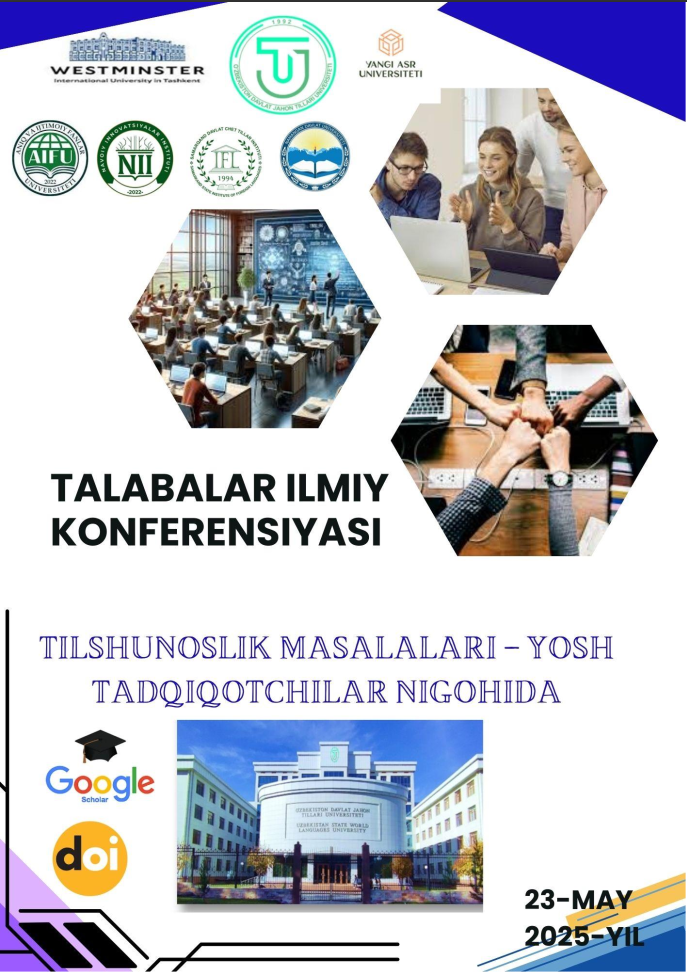SEMANTIC MAPPING OF METONYMIC TRANSFERS IN ENGLISH AND UZBEK
https://doi.org/10.5281/zenodo.15517467
Kalit so‘zlar
Phraseological units, political discourse, idioms, figurative language, pragmatics, rhetorical strategies, persuasion, cultural identity, linguistic expression, English and Uzbek comparison, political language, discourse analysis, semantic impact, ideological framing, public communication.Annotasiya
The study investigates the critical role that phraseological units fixed expressions, idioms, and set phrases play in shaping, framing, and conveying meaning within political communication. Political discourse is a powerful tool used by politicians, media, and institutions to influence public opinion, assert authority, and construct ideological narratives. Phraseological units, due to their figurative and often culturally loaded meanings, serve as effective instruments for persuasion, simplification of complex issues, emotional appeal, and identity construction. This research adopts a functional-pragmatic approach to explore how such expressions operate in real political contexts across English and Uzbek languages, comparing their usage, functions, and stylistic effects. Through qualitative analysis of speeches, interviews, debates, and media texts, the study identifies dominant functions of phraseological units, including manipulation, solidarity, criticism, and national sentiment enhancement. The findings highlight the cultural specificity and strategic deployment of phraseology in political communication and provide insights into the intersection of language, ideology, and power.
Foydalanilgan adabiyotlar ro‘yhati
Arutyunova, N.D. (1990). Phraseology in Political Discourse. Moscow: Nauka.
Charteris-Black, J. (2011). Politicians and Rhetoric: The Persuasive Power of Metaphor. Palgrave Macmillan.
Chilton, P. (2004). Analysing Political Discourse: Theory and Practice. Routledge.
Gulomova, R. (2023). EVOLUTIONARY HISTORY OF CURSING. Journal of Advanced Scientific Research (ISSN: 0976-9595), 3(12)
Kadyrova, Z. (2020). “Phraseological Units in Uzbek Political Speeches: A Cultural-Linguistic Perspective.” Uzbek Journal of Philology, 12(2), 56–66.
Kasimkhodjayeva, M. A. (2022). Boosting language skills through dramatization in EFL classes. Science and Education, 3(6), 886-888.
Rashidova, G. (2024). USING COMMUNICATIVE ACTIVITIES THROUGH APPROACHES IN TEACHING MODERN ENGLISH. TAMADDUN NURI JURNALI, 5(56), 471-474.
Soatova Gulsunoy Kupaysinovna (2020). THE ROLE OF ENGLISH TEACHER IN A MODERN CONTEXT. Проблемы науки, (7 (55)), 64-65.
Sultonova, M. (2024). The significance of critical thinking in learning languages. O ‘zbekiston davlat jahon tillari universiteti konferensiyalari, 443-446.
Мухташамова Парвина Захитовна (2020). Характеристика грамматических навыков в различных видах речевой деятельности. Вестник науки и образования, (12-2 (90)), 86-88.

